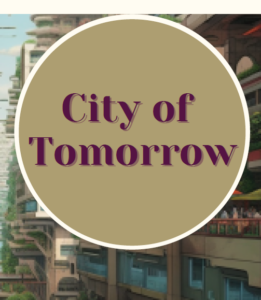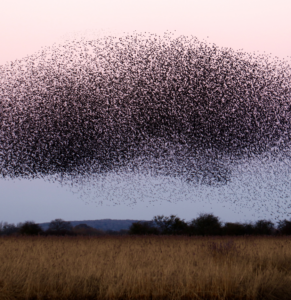Co-Credited – Faith Popcorn and Adam Hanft
We are in a global polycrisis – the Financial Times called it “A year in a world” and a health tridemic. Every CEO is struggling with these colliding threats. Preoccupation is their occupation.
Chief Marketing Officers are grappling with all that, plus their standard playbook is being rewritten right before their eyes.
A year ago, they didn’t need a TikTok strategy, today it’s more important than TV advertising.
Which raises the seemingly odd question – is there room for the future?
We don’t hear this being asked directly, because no one wants to admit that they are slamming the door on tomorrow.
But what is being said, repeatedly, is that focus is everything. Which is code for “the future will have to wait.”
It seems like a rational decision, but it’s wrong. It comes from a misguided notion of how futurism operates in the practical, every day, clearly stressful world of business.
Let us explain with an example. Imagine that you have come to recognize that the microbiome will have a profound impact on your business in the future, given that it effects everything from how we eat to how we age to how we exercise. (Speaking of the latter, a recent study found that a healthy gut microbiome actually boosts the motivation to exercise.)
There is a large body of research, in fact, which shows that a healthy microbiome can slow aging and reduce the risk of dementia – the gut-brain axis.
There is no doubt that the future of the microbiome will change everything – like AI is changing it now. (Think of it this way: AI is computer software, the microbiome is biological software.)
It will open a new era of personalization, because everyone’s microbiota is different, and constantly changing.
Cool stuff. So assume that you accept the compelling need for a “Future of the Microbiome Strategy.”
But at the same time, you’re stuck in the hyperfocus of the short term, as we described earlier.
This paradox applies broadly – to CPG companies, fitness brands, travel companies – because the microbiota touches them all.
So what now? How do you get out of the double bind, whether you’re a CPG company, or in the fitness space, or travel – and you’re focused, there’s that word, again – on the exigencies of the moment.
Here is a quick overview of the absorption of a microbiota strategy that would influence your company in the short term, to set you up for where the world is going.
In short, what we called “Applied Futurism”.
The first shift is mindset.
Operating in the brain space of the future is itself a powerful force for innovation and imagination. It’s an aperture-widening way of working that makes the future a part of the present.
Once you are considering the implications of the microbiota, you will start to think about your current marketing and R&D through fresh eyes.
Of course, you can begin the development of a new product stream that contains the probiotics and fermented ingredients that support gut health.
But a more immediate step is a marketing one: explore the ways that your product or services can deliver gut benefits right now.
There are many unexpected paths to that goal. Meditation, mindfulness, and stress reduction have all been shown to promote a well-nourished, bio-diverse gut.
If your product brings consumers those benefits, you have an opportunity to brand, position, and market yourself in future-ready way. Right now.
This also has immediate implications for your metaverse strategy; McKinsey and others say the opportunity is too big to ignore. At the same time, most companies are struggling to figure out how to use it.
If the microbiota became a core part of your strategy, you could create a metaverse-microbiome link, and start with the stress reduction and mindfulness benefits it delivers.
The reality is that whether you are in the airline business, selling mattresses, or making running shoes – or gardening proucts – there are microbiome-based opportunities that would otherwise go unpursued with having the future squarely in mind.
These opportunities – only possible by making the future part of your everyday thinking – can be expressed through all your content channels.
And there’s a lot more that Applied Futurism can do in the short term. In this case, it can point you to partners who are doing breakthrough work in the microbiome – including R&D companies and universities you might want to license technology from.
Focusing your teams on monitoring the situation and strategic outreach is a light-touch, but critical, step-in positioning yourself for “The Future of the Microbiome.”
And once you do that, innovative people and technology will come knocking on your door.
The last point here is an internal one. Once it becomes clear that the Future of the Microbiome is a core strategic pillar, it will excite and stimulate your organization and culture.
It will encourage your teams to think creatively and broadly.
It’s easy enough to see how our Future of Microbiota can be extended to literally dozens of forces that are shaping the world.
To sum it up: no matter how urgent your day-to-day pressures, the future really can’t wait.
And with a sensitive and affordable roll-out of Applied Futurism, it doesn’t have to.




